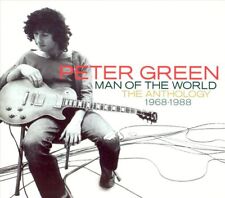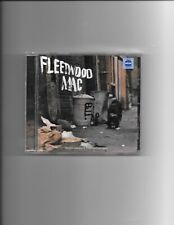|
Scotland on Sunday, White Power Stakes and Limp Banana Syndrome Scotland on Sunday, September 24, 1995, Sunday White power stakes and limp banana syndrome Rock Grandee Mick Fleetwood Has Grown Up And Gone Straight After The Heady Days Of Mega-Stardom, He Insists To Jo-Ann Goodwin LISTEN to me kids. You might have thought that living in LA, being a rock star, and snorting industrial amounts of coke, is a pretty cool and glamorous existence. Well, everything has its price. Mick Fleetwood, spokesman of Seventies supergroup Fleetwood Mac, is a living testimony to the horrors of drugs. Not only do you end up with a 'limp banana', which is a source of considerable disappointment to your much younger wife, but prolonged cocaine abuse leaves you with one of the most ridiculous prose styles known to humanity. Grammar, syntax and meaning become total strangers. You are prone to hyperbole and exclamation marks scatter around you like confetti. Never mind the music, the sleeve notes to the latest offering, Peter Green's Fleetwood Mac Live at the BBC, have to be seen to be believed. Born in Cornwall in the 1940s (there's some disagreement about exactly when), Fleetwood was a child of the RAF. His father was a wing commander, and the young Michael was an early rebel, running away from boarding school at 15 to play the drums. Around 1967 history was made when the 6ft 6in blonde drummer met the slightly less glamorous duo from West Hartlepool, Peter Green and Jeremy Spencer. With bassist John McVie they formed the original Fleetwood Mac line-up, and guitarist Danny Kirwan was added a year later. The group were strongly influenced by the British blues revival and the slide guitar playing of Jeremy Spencer. Spencer earned the probably unwanted soubriquet of "the smallest performer in rock". He was 4ft 11in in his Cuban heels, and prone to dressing up in gold lame Elvis suits for stage performance. This phenomenon is sadly lost to posterity, as none of the early performances survive on film. The songs remain the same though, and Live at the BBC consists of 35 tracks excavated from the BBC archives. Fleetwood characterizes the album as "R&B and lots of great old rock and roll stuff." It is also a chance to hear Peter Green, one of the guitar legends of the Sixties. Fleetwood himself when he listened to Green's contributions, was "reignited as to how great a player he was," - yes, it's that prose style again. Green left the band in 1970, when they were poised on the brink of mega-stardom. He became the first in a very long line of Fleetwood Mac personnel to manifest incontrovertible proof that they were one sock short of a pair. Supposedly worn out by the 'pressures of stardom', Green had taken to appearing on stage in a long white robe. In 1977 he hit the headlines by attacking his accountant with a rifle. The man was trying to deliver a cheque for L 30,000. What a bastard. After this outburst Green was committed to a mental hospital, and variously found work as a hospital porter and a gardener, before falling in with an obscure religious cult, the latter due to become something of a Fleetwood Mac theme. Fleetwood says of Green: "I had dinner with him two nights ago. He lives in Essex and his main worry is being too fat. He's not a raving loony, he just got into a state of extreme thoughtfulness." The curse of "extreme thoughtfulness" descended next on the diminutive Jeremy Spencer. In February 1971 the group was in the middle of a US tour, and holed up in a Los Angeles hotel. Spencer told the others he was "just popping out to buy a newspaper." "When he didn't come back to do the gig that night," says Fleetwood, "we thought he'd been murdered. It was just after a big earthquake, and LA was all weird, this grey electric atmosphere. It turned out he'd just fucked off. They'd took him on a bus and shaved his head. We found him a week later. We had psychics on the case, anyway, he was in a commune and was called Joseph." Spencer had joined the Children of God, an extreme religious sect. He went on to marry a Brazilian girl, and is now living in Rio de Janeiro with his wife and eight children, proving that while his sanity may be in doubt, there is nothing wrong banana-wise. The two departees were replaced by Californian Bob Welch and Christine McVie, wife of bassist John McVie. In 1972 Danny Kirwan left and was replaced by Bob Weston, who embarked on a messy and public affair with Mick Fleetwood's wife. This wrecked the US tour of 1973. Weston was sacked and Welch left. They were replaced by Lindsey Buckingham and Stevie Nicks, and the classic Fleetwood Mac line-up finally emerged. Despite a period of amazing creative and commercial success, the band's personal problems continued. Rumours, released in 1977, became one of the biggest-grossing albums of all time, selling more than 20 million copies, and spawning numerous hit singles - 'Go Your Own Way', 'Don't Stop', 'Dreams', 'You Make Loving Fun'. The McVies' marriage was breaking up, as was the affair between Buckingham and Stevie Nicks. The marriage between Mick Fleetwood and Judy Boyd had reached terminal stage. "The whole album is a living testimony to the break-ups," says Fleetwood. "'Go Your Own Way' is a bitter sweet message to Stevie from Lindsey. 'Don't Stop' is from Christine to John. She's saying, 'look, although I'm leaving you, don't give up, don't stop thinking about tomorrow.' We knew it was damn good in the studio. There are certain points when you feel hallowed, and you go with it, it smells deluxe. We knew something terribly right was happening." Buckingham finally left, but somehow the rest of the band stayed together. Nicks and Christine McVie spent much of the Eighties concentrating on reasonably successful solo careers. John McVie concentrated on a reasonably successful career in addiction, Mick Fleetwood went to Ghana and made the world's most expensive album, The Visitor. Shortly afterwards he was declared bankrupt. It is likely that the self-estimated $ 8m he spent on Peruvian cocaine added to his financial problems. Meanwhile, Stevie Nicks was fighting the feminist corner and doing her best not to be outpaced by Mick in the white powder stakes. Somehow the whole crew stayed in one piece, and produced in 1987 the surprisingly successful Tango in the Night album. Stevie is now in good shape, according to Fleetwood. "She's doing solo albums, taking care of herself and living in Phoenix, Arizona (her home town). If she does get married again, I pity the poor guy, she is very independent." About his own drug abuse, Fleetwood is philosophical. "It was the raving Seventies. We all did it. I used to say I would do it all over again, but now I say no. Okay, at certain points I did have a lot of devious, wicked, twisted fun, but it's a double-edged sword. I was very blessed, it was easy to come off. Maybe it was divine intervention, you've got to come up when you bottom out so badly." No matter how hard they have hit the floor, Fleetwood Mac have always bounced back. Their latest resurrection came in 1992 when 'Don't Stop' was chosen by Bill Clinton as his presidential campaign theme song. Suddenly the band were being played on every radio and TV station across America. Bill and Hillary asked the original Rumours line-up to reform, and they all turned up to play at the huge inaugural party. Mick Fleetwood married "the love of my life", Lynn Frankel, on July 20. Much like his band, Fleetwood is completely cleaned up and back on the straight and narrow. Dressed in a three-piece brown pin- stripe suit, crisp white shirt setting off the deep Californian tan, grey hair pulled back in a pony tail, with one gold hoop earring, he looks every inch the rock grandee. He has forsaken the LA sun to promote the Live at the BBC album. He insists the new CD is not just recycled out- takes too ropey to be included on the original release, it is all previously unheard stuff that will give a new angle on Fleetwood Mac's development. It's a document of musical history, and the songs are great. Mick Fleetwood has done this many times before. He leans back in his chair and begins a recitation which gallops across 30 years: the early success, the fall outs, the drinks, the drugs, the marriage bust- ups, the religious cults, the presidential campaign. Max, the young press officer, listens open-mouthed. Halfway through the disappearance of Jeremy Spencer, Mick Fleetwood pauses for breath. "Go on," says Max. "What happened, did you find him?" Suddenly he remembers where he is and what he's supposed to be doing. "Sorry," he mutters, turning to me. "You're supposed to ask the questions." Thanks to Anusha for the submission.
|







![CELEBRATE THE MUSIC OF PETER GREEN AND THE EARLY YEARS OF FLEETWOOD MAC [4/30] * picture](/vintage/img/g/LGEAAOSwbG1j8hYM/s-l225/CELEBRATE-THE-MUSIC-OF-PETER-GREEN-AND-THE-EARLY-Y.jpg)

